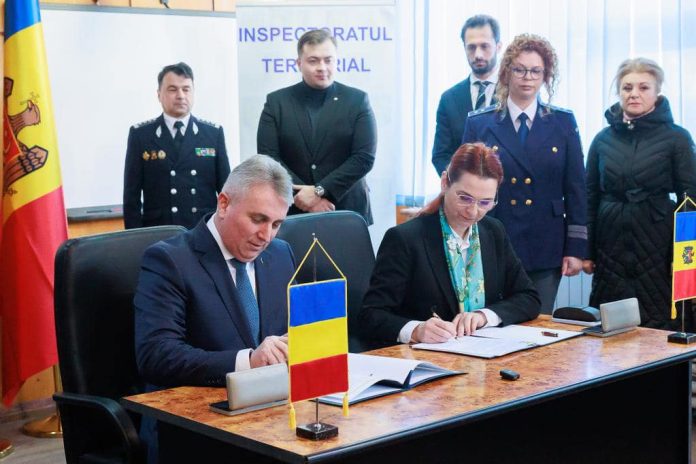Romania’s Interior Minister Lucian Bode and his Moldovan counterpart Ana Revenco on Thursday signed an agreement between the two national governments regarding the implementation of coordinated border control at the Albita and Leuseni customs, according to Agerpres.
„This coordinated control is a natural mechanism of the friendly, fraternal relations between Moldova and Romania, a mechanism generated by the war in Ukraine, which essentially changes things, but equally by the changes that energise the trade relations between our countries. The agreement between the government of the Republic of Moldova and the government of Romania regarding coordinated control at Albita is born out of the need for our countries to have a new mechanism to ensure border security at another level, the need that comes from the challenges generated by the war in Ukraine. Thus, by coordinated control and common contribution of our countries we become important pillars, I dare say main pillars, in the prevention and fight against organised trans-frontier crime, terror, extremism and money laundering,” said Revenco.
Bode mentioned that the agreement is very important to the two countries, especially amid rising border traffic from Moldova following the war in Ukraine.
„Today is a very important moment for Romania, for Moldova and especially for the citizens of our countries. Today, Romania and Moldova have taken a first step that will allow us to act in a coordinated and more efficient manner to face the current challenges, strengthening at the same time co-operation between our countries. (…) The signing of the agreement on the implementation of coordinated control in Romania at the Albita border crossing point, on the way into Romania, will allow us to more effectively manage the effects generated by the current security context in the region and beyond,” said Bode.
He added that before the start of the Russian military aggression against Ukraine, less than 5 million crossings of the common border with Moldova recorded annually, while in 2022, the border police reported a record number of such crossings, over 9.2 million crossings via the six border points, with the largest increase at Albita.
The agreement will soon become operational.
Agerpres


